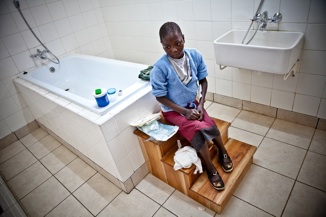The newly constructed burn ward, courtesy of Malawi Mission Work Team and Bosrand Malawi Work Teams, have generously incorporated an eight bed burn unit equipped with a tub and dressing room. The unit also boasts a designated supply room to specifically house donated wound care supplies for the burn patients.
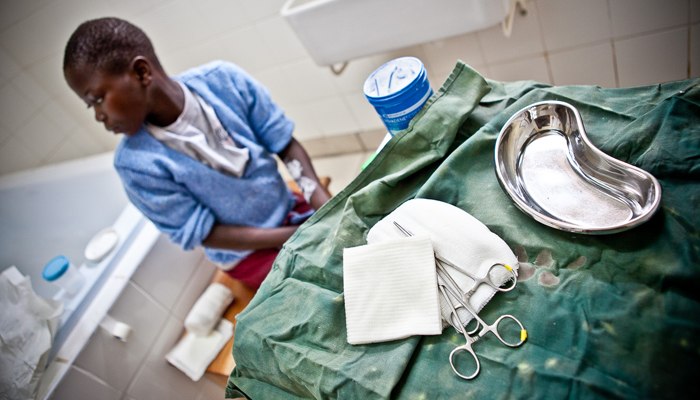
Ellen, ABR survivor, treated in
2006 is shown standing with her
new prosthetic feet.





-
• Education is pivotal for local health care workers to gain autonomy in burn care management. Lectures regarding pediatric burns, burn science, wound recognition and surgical intervention are provided to the local nursing students, nurses, clinical officers and physicians.
-
• Skills training to local staff is essential in improving overall survivability for burn patients. Hands-on training in wound care is provided to ward nurses, while clinical officers and physicians are trained in using modern medical equipment donated by our program.
-
• Data collection and research provide insight into common country-specific mechanisms of injury, age distributions, and co-morbidities associated with rural burn injuries, necessary for the development of effective interventions.
Why ABR is Needed in Malawi
With a population of roughly 14 million, Malawi is a landlocked country in southern
Africa that remains one of the least developed nations in the world. The economy is
predominately agricultural, with about 90% of the population living in rural areas.
The vast majority of this rural population lives as subsistence farmers, with wood as
their main source of fuel. Given the prevalence of fires as the means of accomplishing
many activities of daily living, including cooking, bathing, and cleaning, burns are a
frequent, and often, untreated consequence.
Local hospital staff, with limited training in burn management, are often overwhelmed with the severity of these injuries due to outmoded equipment and a lack of basic medical supplies. Thus, in a country that relies on wood fires for survival, treatment for common burn injuries is often unavailable leading to the extreme need of specialized assistance from our partner program.
-
• Prevention is necessary to decrease the number of burn injuries and mortality rates in rural populations.
Currently, we are offer four prevention programs: -
• Elementary school education regarding fire safely via our Chichewa translated children’s book, “Luka’s Safety Adventure”
-
• Burn survivor personal stories shared with hospital inpatients and parents
-
• Burn Prevention and First Aid Drama Skits played to rural Malawian villages via local drama group
-
• Epilepsy Medication Compliance Program, aimed to decrease the numerous burns associated with uncontrolled
seizures in epileptics.


-
• Approximately 60 patients are admitted per year with a 96% survivability rate.
-
• Yearly, our lecture series reaches an audience of over 100 health care workers,
village chiefs, and Ministry Board members. -
• Donation and instruction of modern surgical equipment for skin harvesting and skin meshing for two Malawian hospital systems.
-
• Protocol implementation for burn admission and wound treatment in our primary hospital site with proven autonomy by local staff.
-
• Data collection regarding burn patients has provided the insight for critical active prevention programs, the first of it’s kind in rural Malawi.
-
• Telemedicine communication from Malawian staff members to US partner clinicians continues to aid the local staff in complicated decision making and treatment plans.
-
• Recruited surgical reconstruction teams have aided in the physical transformation of severely scarred burn patients, improving their quality of life and returning them to activities of daily living.
-
• Development and distribution of two published Chichewa children’s books, focusing on the inpatient burn experience and prevention strategies for children and their parents.


Copyright © 2014 Africa Burn Relief, Inc. | All Rights Reserved
Africa Burn Relief is a registered 501 c3 non-profit organization



Stay Connected
Our Results
-
What We Do

The Newly Constructed Burn Ward
To improve the quality of burn care by developing and implementing a sustainable model of treatment, prevention, and education that can be replicated across Sub-Saharan Africa.
-
Our Vision

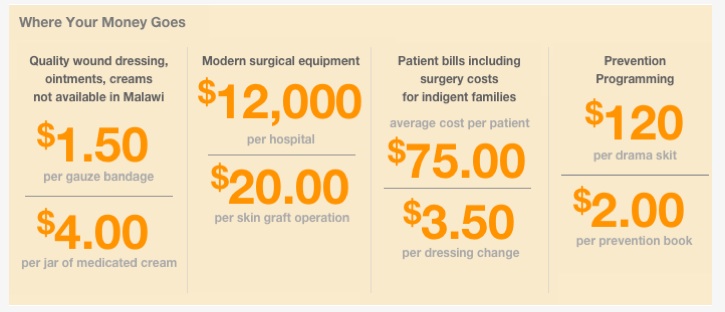
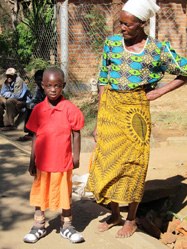
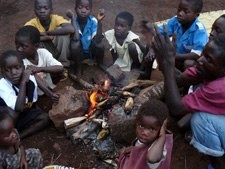
ABOUT US
